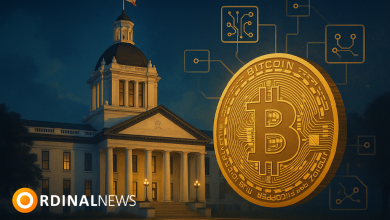Belarus Pushes Banks to Expand Crypto Use as Sanctions Weigh on Economy

President Lukashenko says crypto exchanges may double payments to $3B this year
Belarusian President Alexander Lukashenko is urging the country’s banks to widen their use of cryptocurrencies, acknowledging that Western sanctions have severely strained the national economy.
Speaking to central and commercial bank heads on Tuesday, Lukashenko said the use of digital tokens must be scaled up, citing growing pressure from EU and US sanctions tied to Belarus’ support for Russia’s war in Ukraine.
“Over the past five years, the national economy, and with it the Belarusian banking sector, have faced unprecedented challenges,” he said. “The government and the National Bank have been given corresponding instructions. Now, act.”

The move follows his call last week for lawmakers to draft transparent rules for the crypto sector as the country seeks alternative payment channels. Cryptocurrencies have been widely used by sanctioned nations, including Russia and North Korea, to conduct trade outside of the traditional financial system.
Payments via local exchanges could top $3 billion
Crypto adoption is rising rapidly in Belarus, with users expected to surpass 855,000 by 2026 – nearly 10% of the population, according to Statista.
Lukashenko said exchanges operating in the country, including Binance, OKX and KuCoin, could see external payments double by the end of the year.
“In the seven months of this year, the volume of external payments through cryptocurrency exchanges amounted to $1.7 billion. According to expert estimates, it may reach $3 billion by the end of the year,” he noted.
A 2023 law already restricts crypto trading to Belarusian-registered exchanges, banning peer-to-peer activity outside their platforms.
Push for wider digital payments
Lukashenko also pressed banks to accelerate digital payment solutions. He pointed to QR code-based payments as a starting point and set a deadline to launch an instant payment system by year’s end.
He said Belarus must also prioritize biometric technology, establish a domestic IT firm to reduce reliance on foreign providers, and adopt artificial intelligence in finance.
“Banks must try to make the most of modern technology. Digitalization is not an end in itself; it must deliver tangible economic results,” he added.
A mixed crypto stance
Belarus has sent mixed signals on crypto in recent years. While the country legalized crypto use in 2018, including mining and exchange activity, officials have also floated restrictions. In 2023, the Ministry of Internal Affairs considered banning peer-to-peer crypto transactions.
In March 2025, Lukashenko even instructed the energy minister to develop the country’s mining sector, citing excess electricity capacity.
The latest push suggests crypto will remain a key part of Belarus’ strategy to offset sanctions and sustain its financial system.




